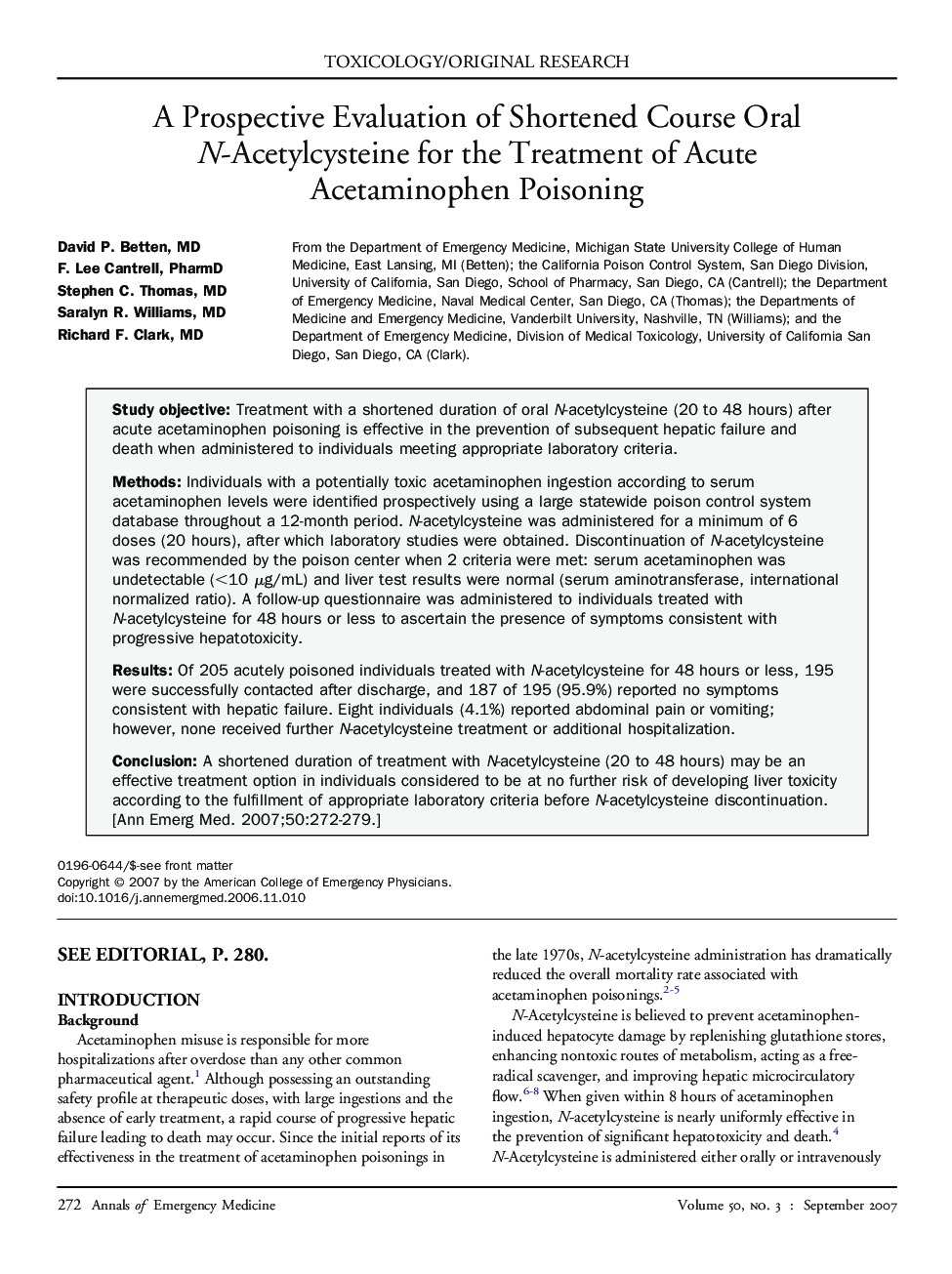| Article ID | Journal | Published Year | Pages | File Type |
|---|---|---|---|---|
| 3233629 | Annals of Emergency Medicine | 2007 | 8 Pages |
Study objectiveTreatment with a shortened duration of oral N-acetylcysteine (20 to 48 hours) after acute acetaminophen poisoning is effective in the prevention of subsequent hepatic failure and death when administered to individuals meeting appropriate laboratory criteria.MethodsIndividuals with a potentially toxic acetaminophen ingestion according to serum acetaminophen levels were identified prospectively using a large statewide poison control system database throughout a 12-month period. N-acetylcysteine was administered for a minimum of 6 doses (20 hours), after which laboratory studies were obtained. Discontinuation of N-acetylcysteine was recommended by the poison center when 2 criteria were met: serum acetaminophen was undetectable (<10 μg/mL) and liver test results were normal (serum aminotransferase, international normalized ratio). A follow-up questionnaire was administered to individuals treated with N-acetylcysteine for 48 hours or less to ascertain the presence of symptoms consistent with progressive hepatotoxicity.ResultsOf 205 acutely poisoned individuals treated with N-acetylcysteine for 48 hours or less, 195 were successfully contacted after discharge, and 187 of 195 (95.9%) reported no symptoms consistent with hepatic failure. Eight individuals (4.1%) reported abdominal pain or vomiting; however, none received further N-acetylcysteine treatment or additional hospitalization.ConclusionA shortened duration of treatment with N-acetylcysteine (20 to 48 hours) may be an effective treatment option in individuals considered to be at no further risk of developing liver toxicity according to the fulfillment of appropriate laboratory criteria before N-acetylcysteine discontinuation.
